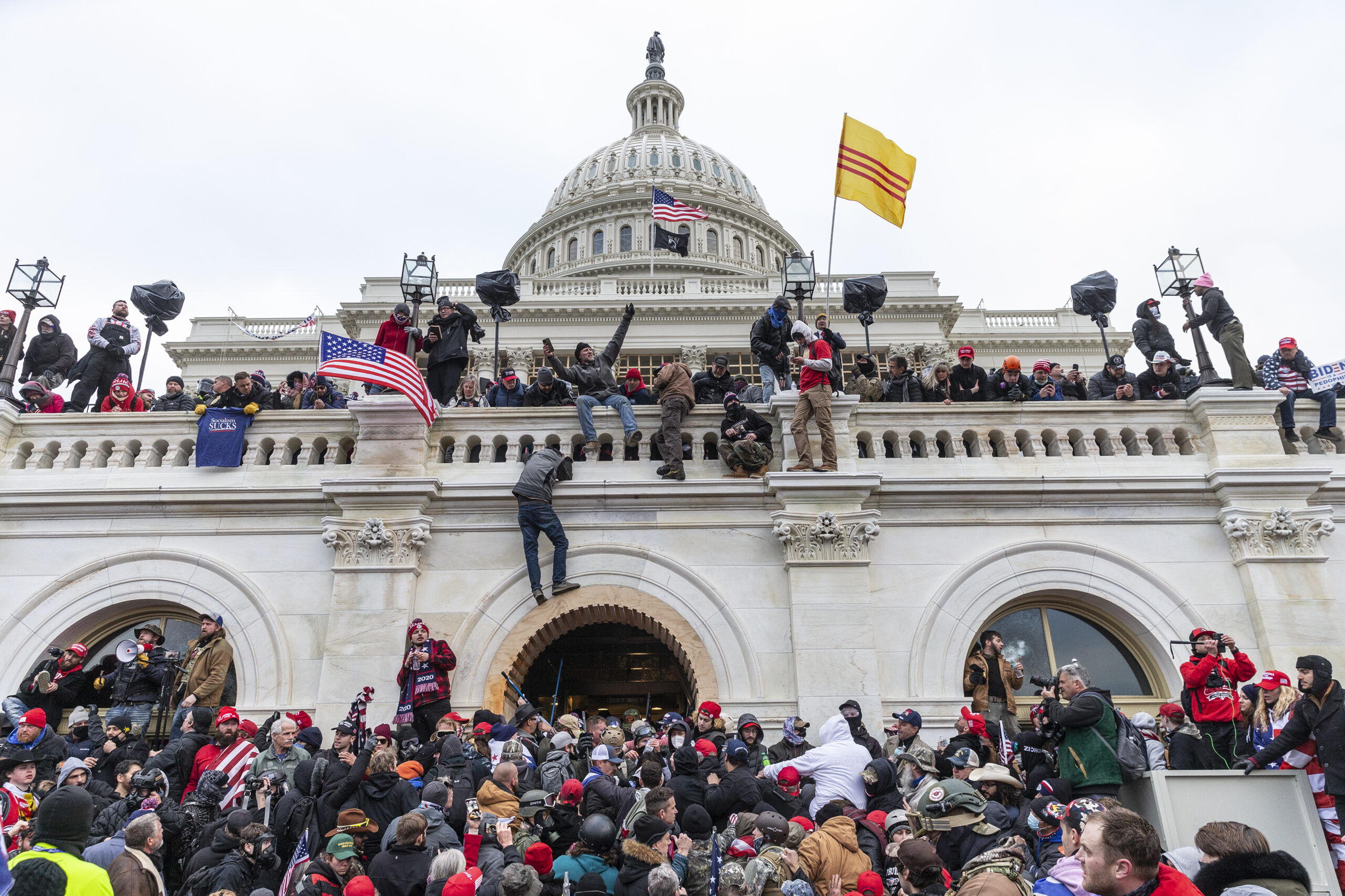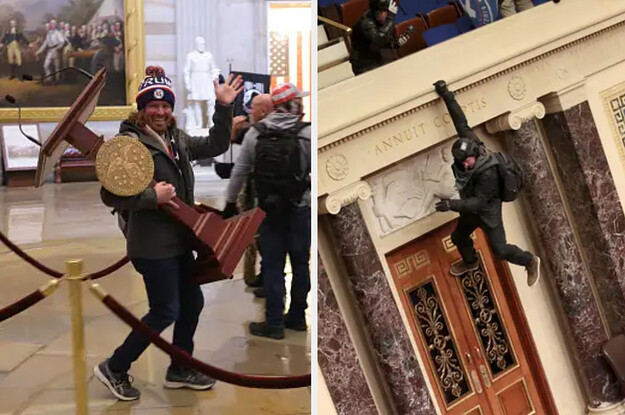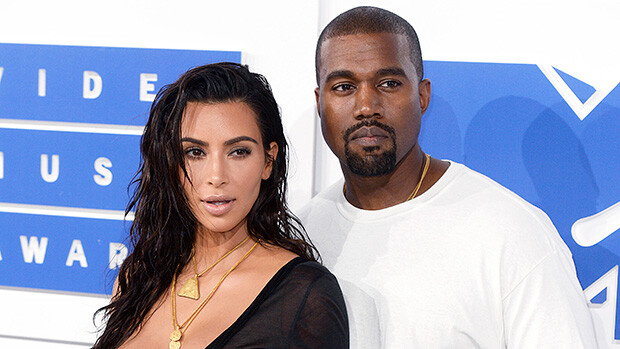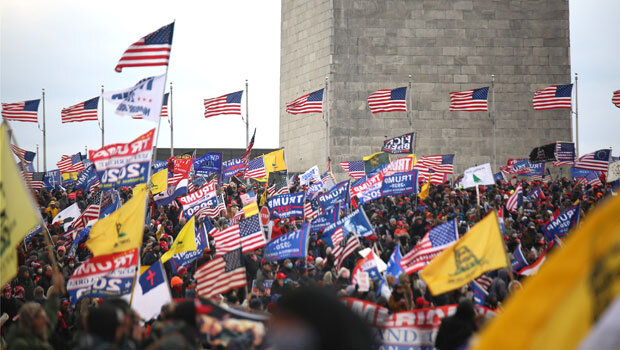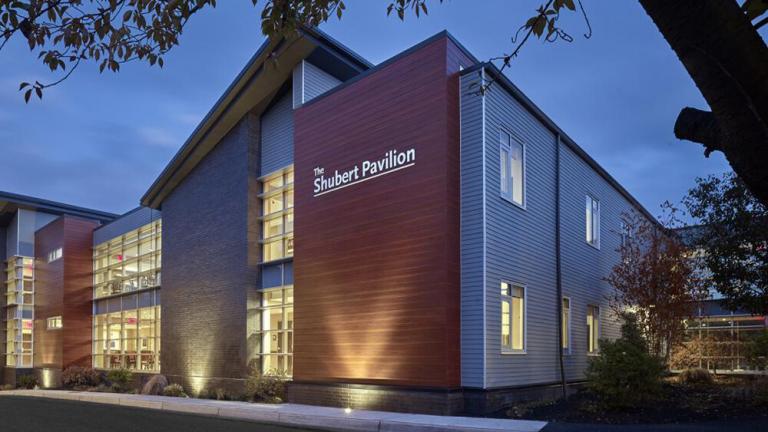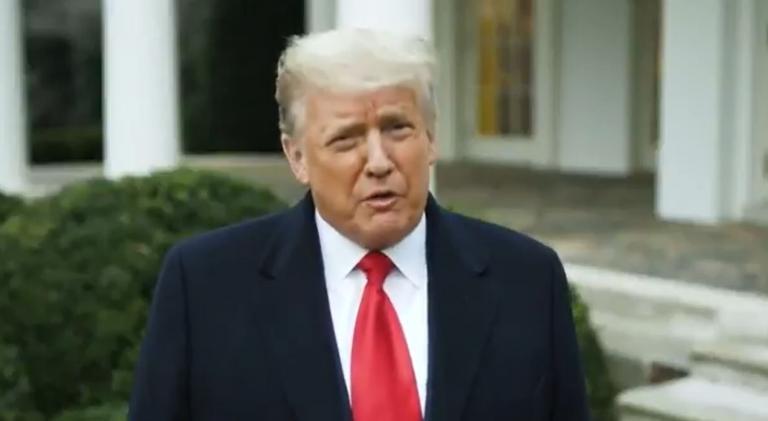Chilling images from the Trump mob’s attack on the U.S. Capitol continue to astonish much of the media even days later, but one of the most difficult to watch is that of an Associated Press photographer, John Minchillo, being beaten on the east side of the Capitol as he tried to cover the demonstrations. “While […]Chilling images from the Trump mob’s attack on the U.S. Capitol continue to astonish much of the media even days later, but one of the most difficult to watch is that of an Associated Press photographer, John Minchillo, being beaten on the east side of the Capitol as he tried to cover the demonstrations. “While […]FeedzyRead More
Full content below:
Chilling images from the Trump mob’s attack on the U.S. Capitol continue to astonish much of the media even days later, but one of the most difficult to watch is that of an Associated Press photographer, John Minchillo, being beaten on the east side of the Capitol as he tried to cover the demonstrations.
“While we are thankful he is OK, this is a reminder of the dangers journalists both in the U.S. and around the world face every day while simply trying to do their jobs,” said an AP spokesperson.
What is hard to believe is where the events of Wednesday took place: At a well-fortified and protected symbol of democracy, overrun by angry rioters, insurrectionists and domestic terrorists.
Some of the most disturbing video was captured by Young Kim, a videographer who works under his Rise Images banner, and had followed the mob up the stairs to the wood and glass doors of the Speaker’s Lobby, an area just outside the House floor. It was there that three or four officers were in line blocking the doors. One person began “smashing the window in the face of the officer” — all captured in Kim’s footage, which he licensed to RMG News.
The officers moved away from the door to one side. “I don’t know why they moved away,” Kim said. The doors were unguarded at that point and the rioters, now unobstructed, began smashing glass and hacking the wood with what looks to be a crowbar. A hand with a gun appeared on the other side.
“I had a colleague next to me and he told me there was a gun and I said, ‘I don’t think they are going to shoot but get down anyway,’ ” Kim said.
Then a shot was seen. One of the demonstrators, Ashli Babbitt, fell.
“In my head, I am thinking there is no way she got shot, probably just got pushed over,” he said. “Then I saw the blood coming out of her nose.” He said he went over to help. “The glass was all smashed out at that point, but I think the message was very clear. If you try to come through, you are going to get shot. No one else tried to climb through.”
The news media — particularly broadcast and cable correspondents and their crews — were a target.
“I have operated in some countries and areas and protests and conflicts where Americans might not be welcome, the western media might not be welcomed, but the hostility that I felt from these rioters might be something that I have never witnessed anywhere else,” said Alexander Marquardt, senior national security correspondent for CNN. He was outside on the grounds of the Capitol and described several incidents in which he and his crew made a narrow escape from the mob.
ABC News chief global affairs correspondent Martha Raddatz, who was covering the Donald Trump rally at the Ellipse and later the demonstrations on the east side of the Capitol, said that it was, weirdly enough, one year to the day that she was “in the middle of hundreds of thousands of demonstrators who were demonstrating against the U.S.
“I think anytime you are in the middle of a huge crowd like that there is danger, but [In Iran] they were seeking me out to tell their story,” she said. “Up here [at the Capitol] my fellow Americans were taunting me and calling me by name. We had security with us, but we could have easily been overrun.”
In separate interviews, Deadline spoke with Raddatz, Marquardt and other correspondents at the scene of the Capitol siege, destined to be a day none of them, or the country as a whole, will ever forget.
Trump speaks on the Ellipse near the White House
JEFF PEGUES, Chief Justice and national security correspondent, CBS News: We set up our live shot at the Ellipse (around 5 a.m.), and they were filling the field there in front of the Washington Monument, and I was sort of moved by the numbers, the fact that that many people were coming from all over the country. The had flags, red white and blue was all over the place, and it was peaceful. There were some who did not like the media, and they made that abundantly clear, and so at times that was uncomfortable. But other than that I talked to a group of militia members from Michigan, who said that they weren’t like the militia members who got arrested and were trying to kidnap and kill the governor from Michigan, and they needed someplace for one of their acquaintances to sit because she had hypothermia, and we helped out. We let her in the truck and she sat in the truck and we were talking to them. And honestly it was nice. It seemed like it was going to be a peaceful rally.
RADDATZ: They were definitely angrier, but it seem like just a festive outdoor Trump rally at that point. I mean, for the media, it felt uglier, and more personal down down but I didn’t imagine they were going to go up and do this. There was one former Marine I talked to who was in tactical gear, and I said, “Why are you in tactical gear? Why are you in body armor?” And he said, well, I am protecting myself. I am the father of four or something. And there is another group where I asked someone, “What is it you are trying to do?” And he said, “Oh you’re just trying to see if we’re going to be violent. We’re not going to be violent. Get the hell out of here.”
PEGUES: I was sitting in the truck and I heard [Trump laywer Rudy] Giuliani up there, and I almost missed his statement but I heard him say “combat,” and I asked one of my colleagues who was in the truck with me. I said, “What? What did he just say?” And he said, “Trial by combat.” So I just sort of chalked that up to Giuliani being Giuliani and I kept going on doing my work I needed to do for radio. And then the president came on and he was very critical of the media, which is not unusual. …And frankly at that point I wasn’t uncomfortable, but you could just tell that in some ways the tone was changing. He talked about how the election was rigged and how could they do this to us. And then I noticed people started leaving, which I thought was interesting because he really just started his speech. And I stopped some of them and I said, “Where are you going?” [They said] “We’re going to the Capitol.”
We got back in the truck and all of the sudden this guy starts attacking our van. He had a stick. He was sort of like staring me down through the window, and he started banging on the window. And he was heading to the Capitol. As is typically my nature I try to engage him in a calmer fashion just to see what his issue was, and he just kept banging on the truck. But fortunately he kept on going. … And so the tone changed, as they started to move toward the Capitol and after and during the president’s speech. It just changed.
RADDATZ: We stayed probably until about 1:30, 1:40, or maybe closer to 2 even. Then we walked back up to the bureau, and I started seeing these reports that it was getting really wild out there. So we jumped in a vehicle and that’s a 10-minute ride to the Hill. And it was crazy instantly. There were at that point police sirens everywhere, It is like the whole city, every law enforcement officer was converging on Capitol Hill. And I am driving in this vehicle with the crew, and I am holding the phone out the window, and I can see Trump supporters as I am driving up there, and I am hearing, “It’s been breached.” … And so I lean out the window and these Trump supporters are like, “They just breached the Capitol. They just breached the Capitol.” And these people are just saying, “They did what they had to do.” And it was kind of at that moment I thought, hh this is bad, if all these supporters are basically cheerleading for that.
Capitol security barriers are breached
MANU RAJU, senior congressional correspondent, CNN: I was watching the floor debate in the House and the Senate in the TVs here in the Senate booth because my plan was to report and interview members as they were leaving the chamber in between their debate and after they vote. So I was just trying to get a good flavor of the proceedings. But the first time that it really seemed that something was amiss was when I got an email forwarded to me from a staffer saying that the House Cannon Building was being evacuated. And that is obviously pretty alarming. Then we learned that the Madison building next to the Library of Congress also had been evacuated. And then after some time, there was word that it was all clear, so I was thinking, OK, maybe things aren’t so bad.
MIKE EMANUEL, chief congressional correspondent, Fox News: I was on the [second floor of the] Senate side of the Capitol when I was looking out the window, and could see that the crowd was getting really large, heading in the direction of the U.S. Capitol, and I found that pretty alarming. I got a sense that the mob was moving in the direction of the Capitol in a hostile way, and then I began to see police officers getting really alarmed, and sprinting in the direction of trying to secure some of these areas.
RAJU: So we are watching the floor debate, and my colleague Ted Barrett, he wanted to just absorb what is going on outside with the demonstrations, and the officers told him, “You can’t leave the building. The building is in lockdown.” And so I immediately informed everybody at the network that the Capitol is in lockdown. I went on air for the first time, from the Senate booth, where we had been monitoring the proceedings, and I said, “Wolf [Blitzer], this is unusual for us to be in lockdown.” Obviously security is concerned about these demonstrators breaching the security perimeter outside. I said, “This is a heavily fortified building. They’re not going to get into this building.” I don’t know if I said it exactly like that, but I did not personally believe that protesters could get into this building. There are guards at every exit and door in the Capitol.
EMANUEL: I went to one of our TV monitors. I was flipping back and forth between the Senate floor and the House floor, and then noticed that they disrupted action on both the Senate and House floor. The Capitol Police kind of frantically told me, you know, get to a safe place, because there was a breach and it wasn’t safe. And so I went to our camera position in the Russell Senate Office Building, preparing to do live shots for Fox and to ride it out.
RAJU: We saw a picture from a reporter [Igor Bobic of HuffPost] that he tweeted out, of these rioters on the second floor of the Senate. They were just steps from the Senate chamber, and throngs of them in the Senate. I was stunned. I was absolutely stunned. I could not believe it. I asked one of our producers who was with me, Ali Zaslav, I asked her. I said, “Is that real?” I could not believe it. But that was real. … I had just had gotten an internal communication from the Capitol Police saying, there is an internal security alert. Return to your office immediately. Lock your doors. Stay quiet in your offices, which obviously I had never seen before. That was really the time that it struck me how serious of a situation this was.
The mob overruns the police
MARQUARDT: From my vantage point [on the west side of the Capitol], which is about a hundred yards away, you could tell that the protesters were at the base of the steps, and then they broke through that police line and stormed up the steps, and that is when we knew that there was a full on incursion and a riot underway.
PEGUES: By the time I got there [on the west side of the Capitol], people were climbing the walls, It was quite the sight to see and what I noticed immediately was that there weren’t enough police officers there. That was pretty clear. You would see police cruisers responding down the street like they were coming, instead of already being there, well into the incident. … We got as close as we could but stayed out of the action.
I saw someone else walking around with a bullhorn, calling for volunteers to storm the Capitol and climb the building. And I confronted her and I said, ‘What are you doing?’ And she’s like, ‘We have a job to do.’ And she was like. ‘I want all volunteers.’ So they clearly wanted to breach that building.
MARQUARDT: Perhaps the most stunning and remarkable thing that I saw was, because there were so many people get up the steps and everyone wanted to get up there and get inside, was a large number of people scaling the western wall of the Capitol. It was just extraordinary to see these rioters climbing up that wall to try to get onto what I have been calling a terrace that goes around the outer edge of the Capitol. And from there, they were able to get inside the actual building.
RADDATZ: The second I got up there, you could tell that it had turned ugly. Just the atmosphere. There were hundreds and hundreds of people there. Wild. Giant Trump flags. Guys tactical military gear and walkie talkies and helmets. Ragtag bands and people, and just jubilant. And there’s not a law enforcement officer around. When I first got up there, a guy, a Trump supporter, goes, ‘Don’t know if you want to go there. They just shot a girl in the neck.’
RAJU: The Capitol Police had hardly any presence compared to the mob. There were so many people, looters and criminals, who were in the building. I was talking to some House members who were in the House chamber during that lockdown, and during the armed standoff that occurred, and they were telling me how the frightening experience from indoors because the officers had locked the doors. They had put desks and chairs in front of the doors to prevent anyone from breaking in. What prompted the armed standoff was when the guy broke the window in the door, and they didn’t know when he broke the window. Was it a gun? What was it exactly? An explosive device? A congressman who was in the room, he told me, ‘That is the first time I thought in my life I was going to die.’
EMANUEL: I thought [the Kavanaugh confirmation] was the loudest and most tense protest I’d seen in my years on Capitol Hill. I’ve worked in Afghanistan. I’ve worked in Iraq for Fox, done some tours of duty in war zones, and it felt more like Bagdad or Kabul than our nation’s Capitol.
Attacks on the news media
MARQUARDT: It knew that going into that crowd it would be a hostile crowd. I knew that it was generally anti-mainstream news if you will, and I knew that it would be specifically anti-CNN. So we went in there carefully. … The moment that they see a TV crew, they want to know, ‘Who you are with?’ That is the most innocent question. But oftentimes it is a more pointed question of, ‘Are you fake news or are you real news?’
RADDATZ: I felt my own instincts kick in from my experience, and would kind of take the crew forward or pull them back. There were a couple of times I would go to the [far right militia] Oath Keepers, and they were dressed in tactical gear, and I would try to listen in on them….I would overhear these guys, and there was one guy [saying], like, Are you going back in? And he said, ‘No, I am not going back in, because I got blown up in Iraq and I have bad hips.’ And for me it was just sickening, that a veteran, a U.S. military service member who had sworn an oath to the Constitution was doing that.
MARQUARDT: We went around to the northern side, and got up onto the outside area where all of these rioters were gathering, milling about. Some had gotten inside from elsewhere, and at one point they had clocked on to who we were. CNN. A handful of people started shouting that, calling us the enemy of the people. Calling us traitors. Chants of USA. Lots of swearing to get the f– out of there. So it quickly became clear that this was a dangerous situation and we had to leave. We quickly made our way out of the area, but there were a number of people trying to block our way. One guy was saying to us, ‘There are more of us than there are of you.’ We managed to get past them and make our way to the edge of the crowd, and at that point one of the rioters stepped in and said, ‘Get the hell out of here before you get hurt.’ And he was essentially shouting at the other rioters to not hurt us. Luckily no one did get hurt. But more than anything, it was just so distressing to hear that from fellow citizens in my own country, in the city that I live in, just two miles from my house. It was absolutely stunning.
Getting it under control
RAJU: I stayed in my office, and I assumed we were okay. I assumed they couldn’t find me. We are in a non descriptive area of the Capitol complex. Suddenly, three hours later, cops came into the gallery, saying ‘You got to evacuate! You got to evacuate!.’ So we grabbed all of our stuff and left and we were escorted out by police. At that point, there were no rioters that I saw when I walked outside the gallery, but it was trashed. There was debris everywhere, than hand sanitizer stations knocked down, furniture flipped over. Slippery dust everywhere that came from tear gas or fire extinguishers that had been extinguished. It smelled like smoke bombs. Obviously they were very close to us. I didn’t realize it, but they were very close to us.
They escorted us to a secure area, where also the senators were nearby. They were actually meeting, everybody except for the leadership, they were meeting nearby behind closed doors. We were in a secure location by that point, but we were waiting in the wings for the senators to leave. And so when they left we got some sense of what was happening, how they were planning to move ahead with the certification process that night.
EMANUEL: By 8:00 I was pretty much done with my responsibilities and so I went to talk to the police officers, and they said yeah, you can head out. And so they directed me to the one door that was letting people out and I made my way back, and I think the curfew helped in terms of getting a lot of people off the street after 6:00.
MARQUARDT: I was stunned at how long it took. It started around 2:00. It took hours before there was any real response. It was absolutely stunning. This is Washington, D.C. This is the Capitol building. There are countless law enforcement agencies in this city, plus the military, plus the National Guard, and it wasn’t until dusk fell, just before the 6:00 PM curfew, that we finally started to see the rioters getting pushed back.
We saw this long line of Metropolitan Police, National Guard and a small contingent of FBI line up along the western side of the building and slowly and methodically start pushing protesters back. There didn’t seem to be much resistance from the protesters . Maybe they felt like they had done what they came there to do.
RADDATZ: You didn’t really know how it would end. I knew it would be a historically dark and ugly day in U.S. history, because just to imagine, just to imagine my fellow Americans had desecrated and stormed the U.S. Capitol. I think what was so disturbing was sort of the sense of triumph, and glee and no remorse. You saw this from hundreds of people outside.
The aftermath
EMANUEL: I think the rank and file officers were put in a tough spot because because I think the leadership never imagined it would be so bad. I can only imagine what a police officer must feel when you see what you believe to be other Americans smashing windows and climbing into the building that you were responsible for protecting. I mean, do you shoot your fellow Americans? What an awful position to be in. Obviously there will be lots of hearings and after action reports and my guess is that security will grow out to be more rings and and probably keep a lot of good honest Americans further away from the Capitol building for the sake of security.
RADDATZ: On 9/11, I stood on the Memorial Bridge that day because I had been evacuated from the State Department, and I can see the Pentagon burning, and obviously hearing reports of what happened in New York. And then we are getting reports that a plane is going to hit the Capitol, and I remember just staring at the Capitol, and being so grateful at the end of that night. ‘Thank God the terrorists didn’t take the Capitol.’ So I thought of that day when these American citizens are running and desecrating the Capitol. I am probably going to go home and search all the video I can just to see everything that happened in that building, because I don’t want to forget it.
PEGUES: I just couldn’t believe what I was seeing. In fact, earlier in the day, at the Ellipse, I was just looking at the crowd, after talking to a lot of the people in the crowd, and hearing their statements. It’s rigged. I would ask, are you going to support a President Biden? No. They stole the election. What evidence do you have? They stole the election. Where do you get your news? On the Internet. That’s your problem, I would say. They have a different take on the world, and in my view, based on what I know about what is going on in this world, it lacks facts. It’s not reality, It’s a fantasy. And every person I talked to was saying the same thing.
MARQUARDT: These people have been fed a bill of lies, and it is almost no surprise that they respond with this kind of hostility. At the same time, it’s extremely jarring to see that play out in real life. It is one thing to not believe the media, or to not believe that the election was legitimate. But then it went a step farther, and it did translate into physical violence. Five people are now dead because of the lies that millions of Americans have been fed, and that is just so depressing.
RADDATZ: I have tried for four years to be as fair and non partisan and straightforward, because that is what we do. But I cannot be objective about this. It was appalling, and he incited violence, and it worked.

